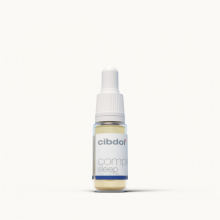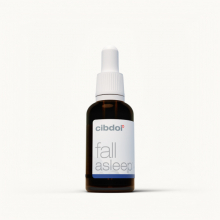How Much Sleep Do I Need?
Last updated:
Published:
How much sleep do I need? This is a question that many people ask themselves, especially as they navigate the demands of modern life. The response to this query is intricate, as it fluctuates depending on personal elements and situations. In this piece, we'll delve into the science behind sleep needs and how to maximize rest for enhanced health and happiness.
Contents:
We'll start by examining the latest findings from sleep research society regarding the recommended amount of sleep for different age groups. Next, we'll discuss various factors that affect sleep quality such as lifestyle choices, stress levels, and medical conditions. We will also highlight the numerous benefits of getting adequate shut-eye - ranging from improved cognitive function to enhanced immune system performance.
Moving forward in our exploration of "how much sleep do I need," we will share practical strategies to improve your overall sleep quality while addressing common challenges like insomnia or disrupted circadian rhythms. Lastly, we'll touch upon prevalent sleep disorders and their respective treatments so you can make informed decisions about managing any issues you may face with slumber.
Understanding Sleep Requirements
Sleep plays a crucial role in maintaining our overall health and well-being. It is during sleep that our body repairs and restores itself, consolidates memories, and supports various cognitive functions. A good night's sleep can improve our mood, productivity, and decision-making abilities. Though the amount of sleep necessary may vary among individuals, depending on factors such as age, lifestyle and individual needs, it is still important to get adequate rest.
Recommended Sleep Duration for Different Age Groups
The National Sleep Foundation (NSF) has provided guidelines on the recommended hours of sleep for different age groups:
- Newborns (0-3 months): 14-17 hours per day
- Infants (4-11 months): 12-15 hours per day
- Toddlers (1-2 years): 11-14 hours per day
- Preschoolers (3-5 years):10-13 hours per day
- School-age children (6-13 years):9 -11hours per day li > Teenagers(14 -17years ):8 -10hoursperday Youngadults(18 -25years ):7 -9hoursperday Adults(26 -64years ):7 -9hourspernight Note that these recommendations are general guidelines; some individuals may require more or less sleep depending on their unique circumstances.
Understanding sleep requirements is an important factor in achieving optimal health and wellbeing. Next, let us explore the components that can influence our sleep quality.
Factors Affecting Sleep Quality
Sleep quality is influenced by various factors, including lifestyle choices, environmental conditions, and individual needs. Gaining insight into these aspects can assist in making changes to enhance your sleep quality and general health.
Lifestyle Choices
- Diet: Consuming a balanced diet rich in nutrients can promote better sleep. Avoid heavy meals close to bedtime as they may cause discomfort or indigestion. Additionally, limit the intake of caffeine and alcohol as they can disrupt sleep patterns.
- Exercise: Regular physical activity has been shown to improve sleep quality; however, it's essential not to exercise too close to bedtime as it might stimulate the body and make falling asleep more difficult.
- Stress Management: High stress levels can negatively impact your ability to fall asleep or stay asleep throughout the night. Implement relaxation techniques such as meditation or deep breathing exercises into your daily routine for better stress management.
Environmental Conditions
- Sleep Environment: Create a comfortable sleeping environment that promotes relaxation by ensuring proper room temperature (ideally between 60-67°F), reducing noise levels with earplugs or white noise machines if necessary, and using blackout curtains for optimal darkness.
- Beds & Bedding:Your mattress should provide adequate support while pillows should be appropriate for your preferred sleeping position (Sleep Foundation provides guidance on choosing suitable pillows). Invest in high-quality bedding made from breathable materials that regulate body temperature during sleep. li>
Individual Needs
Each person's sleep requirements may vary based on factors such as age, genetics, and overall health. It is essential to listen to your body and adjust your sleep schedule accordingly. If you find yourself consistently feeling tired despite getting the recommended amount of sleep for your age group, consider consulting a healthcare professional or seeking advice from reputable sources.
The Role of CBD in Sleep Quality
Cannabidiol (CBD), a non-psychoactive compound found in cannabis plants, has been gaining attention for its potential benefits in improving sleep quality. Some studies suggest that CBD may help reduce anxiety and promote relaxation, which can lead to better sleep quality. Yet, further exploration is essential to completely comprehend the consequences of CBD on slumber.
Understanding the components which can influence slumber quality is essential to guarantee a restful night. Moving on, let us explore the benefits of getting adequate sleep.
Benefits of Adequate Sleep
Having a suitable amount of rest is vital for preserving ideal health and wellbeing. When we receive the recommended amount of sleep, our bodies can function at their best, providing us with numerous benefits that enhance various aspects of our lives. Some key advantages of adequate sleep include:
- Improved mood: A good night's rest helps regulate mood by balancing neurotransmitters and hormones in the brain. Sleep helps to regulate hormones and neurotransmitters in the brain, leading to a calmer state of mind and more optimistic attitude. Learn more about how sleep affects your mood.
- Better productivity: Sufficient sleep allows our brains to consolidate memories and process information effectively, leading to increased focus, creativity, and problem-solving abilities during waking hours. Discover how sleep deprivation affects cognitive performance.
- Enhanced decision-making skills: With proper rest comes improved mental clarity and judgement capabilities which are crucial for making sound decisions throughout the day.
- Promotes physical health: During deep stages of sleep, our bodies repair tissues, build bone and muscle mass while also strengthening the immune system against infections or diseases like colds or flu.
- Maintains healthy weight:Adequate sleep regulates appetite-controlling hormones such as leptin (which signals fullness) & ghrelin (which stimulates hunger), helping you maintain a balanced diet without overeating. Read about the connection between sleep and weight gain.
- Supports mental health: Consistent, quality sleep is essential for reducing the risk of developing mood disorders like anxiety or depression. Explore how sleep disturbances affect mental health.
Incorporating CBD products, such as those offered by Cibdol, into your daily routine can also contribute to improved sleep quality by promoting relaxation and reducing stress levels. Learn more about the potential benefits of using CBD oil for better sleep.
To ensure optimal physical and mental health, it is critical to obtain sufficient sleep. Strategies such as setting a consistent bedtime routine, avoiding caffeine late in the day, and limiting screen time before bed can help improve your quality of sleep.

Strategies to Improve Sleep Quality
By implementing some simple strategies, you can enhance the quality of your rest and reap the numerous benefits associated with adequate sleep. Here are some effective tips to help you achieve better sleep:
Create a Comfortable Sleep Environment
Your bedroom should be conducive to relaxation and promote a sense of calmness. To create a restful sleep atmosphere, think about variables such as temperature, illumination and sound. The Sleep Foundation recommends keeping your bedroom cool (around 65°F or 18°C) and minimizing exposure to light by using blackout curtains or eye masks.
Maintain a Consistent Sleep Schedule
Establishing a regular bedtime routine can help regulate your body's internal clock, making it easier for you to fall asleep at night and wake up feeling refreshed in the morning. Aim to go to bed and wake up at consistent times each day - even on weekends - so that your body becomes accustomed to this schedule.
Avoid Stimulants Before Bedtime
- Caffeine: Consuming caffeine late in the day can interfere with your ability to fall asleep since it acts as a stimulant that keeps you alert. Steer clear of coffee, tea, soft drinks, chocolate or any other caffeinated items at least six hours prior to hitting the hay.
- Nicotine: Like caffeine, nicotine is also a stimulant that may disrupt sleep patterns if consumed close to bedtime. Refrain from smoking cigarettes or using other tobacco products before going to bed.
Limited Screen Time Before Bed
Before bedtime, reduce exposure to blue light from electronic devices like smartphones and computers as it can disrupt melatonin production - a hormone that regulates sleep. To improve your sleep quality, limit screen time at least one hour before bedtime or consider using blue light-blocking glasses.

Incorporate Relaxation Techniques
Before bedtime, relaxation techniques such as deep breathing exercises, PMR, meditation and gentle yoga stretches can help the body to relax and prepare for a restful sleep. Some effective methods include deep breathing exercises, progressive muscle relaxation (PMR), meditation, and gentle yoga stretches.
Consider Natural Sleep Aids
If you're still struggling to achieve better sleep quality despite implementing these strategies, you may want to explore natural sleep aids like CBD oil. Research suggests that CBD may have potential benefits in promoting relaxation and improving overall sleep quality. Consult with a healthcare professional before incorporating any new supplements into your routine.
Sleep quality can be improved through the implementation of certain strategies such as creating a comfortable sleep environment, exercising regularly, and avoiding caffeine. Let's now look into the various sleep disorders that could possibly impede your capacity to acquire sufficient, restful slumber.
Common Sleep Disorders
Sleep disorders can significantly impact your overall health and well-being, making it essential to identify and address them promptly. Here are some common sleep disorders that may be affecting the quality of your sleep:
- Insomnia: Insomnia is a prevalent sleep disorder characterized by difficulty falling asleep or staying asleep throughout the night. According to the Sleep Foundation, around 30% of adults experience short-term insomnia, while approximately 10% suffer from chronic insomnia.
- Sleep Apnea: Obstructive Sleep Apnea (OSA) occurs when an individual's airway becomes partially or completely blocked during sleep, causing breathing disruptions and frequent awakenings. The American Sleep Apnea Association estimates that nearly 22 million Americans suffer from this condition.
- Narcolepsy: Narcolepsy is a neurological disorder that affects an individual's ability to regulate their wakefulness and sleep cycles properly. People with narcolepsy often experience intense daytime sleepiness and sudden bouts of muscle weakness, referred to as cataplexy. For more information on narcolepsy, visit theNarcolepsy Network website.
- Restless Legs Syndrome (RLS): RLS is a sensorimotor disorder in which individuals feel an irresistible urge to move their legs due to uncomfortable sensations such as tingling or crawling feelings beneath the skin surface at rest - particularly during bedtime hours. The Restless Legs Syndrome Foundation provides comprehensive information on this condition.
- Circadian Rhythm Sleep Disorders: These disorders occur when an individual's internal body clock, which regulates the sleep-wake cycle, is misaligned with their external environment. Examples include jet lag and shift work disorder. The American Academy of Sleep Medicine can provide further information on circadian rhythm sleep disorders.
If you suspect that you may be suffering from a sleep disorder, it is crucial to consult with a healthcare professional or a certified sleep specialist for proper diagnosis and treatment recommendations.
Common sleep disorders can have a significant impact on one's quality of life, and seeking treatment is often the best way to address them. Let's now examine the various treatment options that are accessible for sleep disorders.
Treatments for Sleep Disorders
In this section, we will discuss various treatments available for common sleep disorders such as cognitive behavioral therapy (CBT) and medications.
Cognitive Behavioral Therapy (CBT)
Cognitive Behavioral Therapy is a widely used non-pharmacological approach to treat insomnia and other sleep-related issues. CBT focuses on identifying and modifying negative thoughts, beliefs, and behaviors that contribute to poor sleep quality. Some key components of CBT include:
- Stimulus control: Establishing a consistent bedtime routine and creating an environment conducive to sleep.
- Sleep restriction: Limiting the time spent in bed when not sleeping to improve overall sleep efficiency.
- Relaxation techniques: Practicing relaxation methods like deep breathing exercises or progressive muscle relaxation before bedtime.
- Cognitive restructuring: Challenging irrational thoughts about sleep that may cause anxiety or stress.
Medications
In some cases, medications may be prescribed by healthcare professionals to manage specific symptoms associated with certain sleep disorders. It is essential to always seek medical advice prior to beginning any new medication program. Commonly prescribed medications for treating different types of sleep disorders include:
- Benzodiazepines: These sedative-hypnotic drugs are often used short-term for treating insomnia due their potential risk of dependence if taken long-term (source).
- Z-drugs: These non-benzodiazepine hypnotics, such as zolpidem and eszopiclone, are also prescribed for short-term insomnia treatment.
- Melatonin agonists: Ramelteon is a melatonin receptor agonist that helps regulate the sleep-wake cycle and can be used to treat insomnia (source).
- Sleep aids containing antihistamines: Over-the-counter medications like diphenhydramine or doxylamine succinate may help with occasional sleeplessness but should not be relied upon long-term due to potential side effects.
- Narcolepsy medications: Stimulants like modafinil or sodium oxybate may be prescribed for individuals diagnosed with narcolepsy (source).
In addition to these conventional treatments, alternative therapies such as acupuncture, herbal supplements (e.g., valerian root), and incorporating CBD products like Cibdol CBD oil, have shown promise in improving sleep quality. However, it's crucial always to consult your healthcare provider before trying any new treatment option.
- Stimulus control: This technique involves associating the bed with only sleep-related activities so that it becomes a cue for falling asleep quickly.
- Sleep restriction: Limiting time spent in bed helps consolidate fragmented sleep into longer periods of restorative slumber.
- Sleep hygiene: Developing good habits like avoiding caffeine late in the day or creating an optimal sleeping environment can improve overall sleep quality.
Melatonin Supplements
Melatonin is a hormone naturally produced by our bodies that regulates our internal clock or circadian rhythm. Melatonin supplements have become popular over-the-counter remedies for those struggling with insomnia or jet lag due to their ability to promote relaxation and induce drowsiness when taken before bedtime (source). However, it's essential to consult with a healthcare professional before starting any new supplement regimen.
Prescription Medications
Sometimes, medical drugs may be essential to address sleep difficulties. For example, individuals suffering from narcolepsy may require stimulant medications like modafinil or armodafinil to help them stay awake during the day. On the other hand, those diagnosed with obstructive sleep apnea (OSA) might benefit from continuous positive airway pressure (CPAP) therapy or oral appliances designed to keep their airways open while they sleep.
Lifestyle Changes and Alternative Therapies
For many people dealing with sleep disorders, making lifestyle changes can significantly improve their symptoms. Some helpful adjustments include maintaining a consistent bedtime routine, exercising regularly, managing stress through relaxation techniques such as meditation or yoga and avoiding alcohol and nicotine close to bedtime. Additionally, alternative therapies like acupuncture have shown promise in treating insomnia (source).
Finding an effective solution to sleep disorders is essential for achieving optimal health and wellbeing. By exploring various treatment options and working closely with your healthcare provider, you can find an effective solution tailored specifically for your needs.

Frequently Asked Questions How Much Sleep Do I Need.
How much sleep do we need according to scholarly articles?
Most adults require 7-9 hours of sleep per night, as recommended by the National Sleep Foundation. However, individual needs may vary depending on factors such as age, lifestyle, and overall health.
How much sleep do you technically need?
Technically, adults should aim for a minimum of 7 hours of sleep each night. This is based on research showing that sleeping less than this amount can lead to negative health consequences such as increased risk for obesity and cardiovascular disease. More information can be found in this Sleep Foundation article.
Can you survive on 4 hours of sleep?
While some individuals claim they can function with only 4 hours of sleep per night, it is not sustainable or healthy in the long term. Chronic lack of sufficient rest increases risks for cognitive impairment and various health issues. Read more about the dangers associated with insufficient sleep at Harvard Health Blog.
Is 5 hours of sleep enough for you?
No, generally speaking, five hours isn't enough quality rest for most people. Consistently getting inadequate amounts may result in fatigue and decreased mental performance during daytime activities. For optimal functioning and well-being,studies suggesta range between seven to nine hours of sleep per night for adults.
Conclusion
Different age groups require different amounts of sleep, but in general, adults should aim for 7-9 hours per night. Factors such as lifestyle and individual needs can also affect your sleeping patterns. Adequate sleep has many benefits including improved moods, productivity levels, decision making abilities and overall health. If you are having difficulty getting enough quality restful nights' sleeps there are strategies that can help improve your quality of sleep such as avoiding caffeine late at night or creating a comfortable environment conducive to relaxation before bedtime. Therefore, to ensure your body gets the required rest each day it is important to seek professional help if you suffer from any kind of sleeping disorder.
- Disclaimer:
- This article has been written for informational purposes only, and is based on research published by other externals sources
















